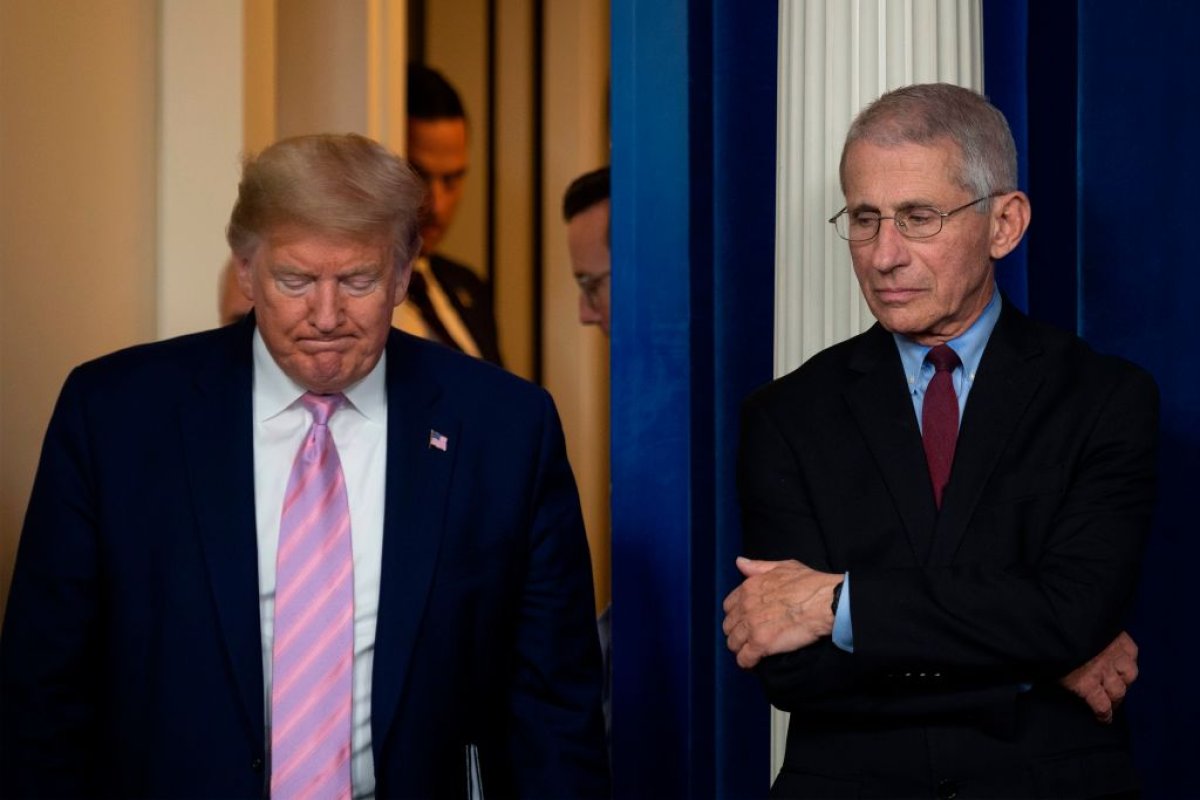Dr. Anthony Fauci, a key member of President Donald Trump's Coronavirus Task Force, warned that the coming days would be bad for Americans as projections show an "escalation" in the number of confirmed cases of the novel virus.
Fauci, who serves as the director of the National Institute of Allergy and Infectious Diseases, made the remarks during an interview with CBS News' Face the Nation on Sunday. But he also predicted optimistically that the data suggests the number of confirmed cases will flatten out after this coming week.
"Well, this is going to be a bad week," Fauci warned. "Unfortunately, if you look at the projection of the curves, of the kinetics of the curves, we're going to continue to see an escalation," he said.
"Also, we should hope that, within a week, maybe a little bit more, we'll start to see a flattening out of the curve, and coming down," the public health expert explained. Fauci said that mitigation, such as social distancing measures, are "absolutely key" to decreasing the number of new cases.
What should Americans be preparing for with #coronavirus?
— Face The Nation (@FaceTheNation) April 5, 2020
Head of @NIAIDNews Dr. Anthony Fauci tells @margbrennan “This is going to be a bad week,” but also says “within a week we’ll start to see a flattening out of the curve pic.twitter.com/RnNx34XGnT
"Things are gonna get bad, and we need to be prepared for that. It is going to be shocking to some. It certainly is really disturbing to see that. But that's what's going to happen before it turns around," he said. "So just buckle down, continue to mitigate. Continue to do the physical separation, because we gotta get through this week that's coming up."
As of early Sunday afternoon, there were more than 321,000 confirmed cases of coronavirus within the U.S. Of those, more than 9,100 have died, while over 16,700 have recovered.
But The Washington Post reported on Sunday, and BuzzFeed News reported at the end of March, that the death toll from COVID-19, the disease caused by coronavirus, was almost certainly higher than reported. Doctors and health experts told the publications that many deaths were slipping through the cracks due to a lack of testing as well as some reporting errors. Additionally, many people may have the virus but not experience any symptoms, while still being able to infect others.
As a result, Fauci and other health experts have argued in favor of implementing a national lockdown. Most states and many municipalities across the country have already announced "stay at home" or "shelter in place" orders in an effort to curb the spread of the novel coronavirus. But Trump has resisted doing so on a national level, arguing that states should make that decision for themselves. The president has, however, backed federal guidelines that call for stringent social distancing through April 30.

"The tension between 'federal mandated' versus 'states' rights' to do what they want is something that I don't want to get into," Fauci told CNN on Thursday, when he was asked about Trump's decision not to implement a national lockdown. "But if you look at what's going on in this country, I just don't understand why we're not doing that. We really should be."
Last Tuesday, Fauci along with Dr. Deborah Birx, the White House coronavirus response coordinator, announced that a protected 100,000 to 240,000 people would die in the U.S. even with stringent social distancing measures. However, that number would likely be much higher – from 1 million to 2.2 million – if the policies were not implemented.
Uncommon Knowledge
Newsweek is committed to challenging conventional wisdom and finding connections in the search for common ground.
Newsweek is committed to challenging conventional wisdom and finding connections in the search for common ground.
About the writer
Jason Lemon is a Weekend Editor at Newsweek based in Brooklyn, New York. Prior to taking on the editor role, Jason's reporting focused on ... Read more
To read how Newsweek uses AI as a newsroom tool, Click here.








